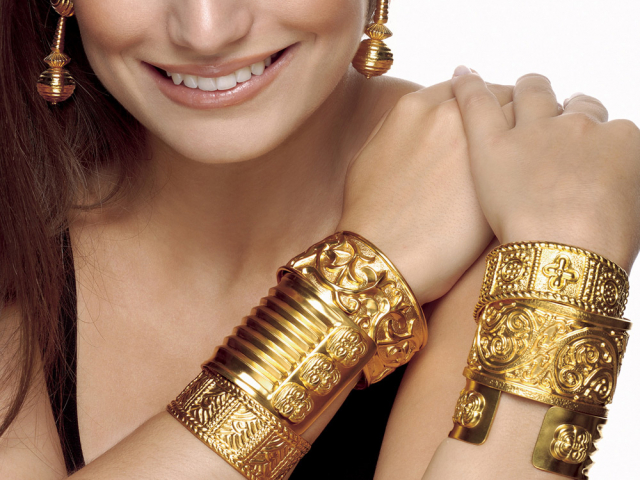
From time immemorial, women of the whole world have been striving to beautify themselves not only with the help of cosmetics but also with the help of jewelry. Modern women can find all forms of jewelry almost everywhere. But women who lived long before us have always found opportunities to make themselves more attractive. Let’s take a stroll down a jewelry memory lane and discover the 7 oldest pieces in the entire world.
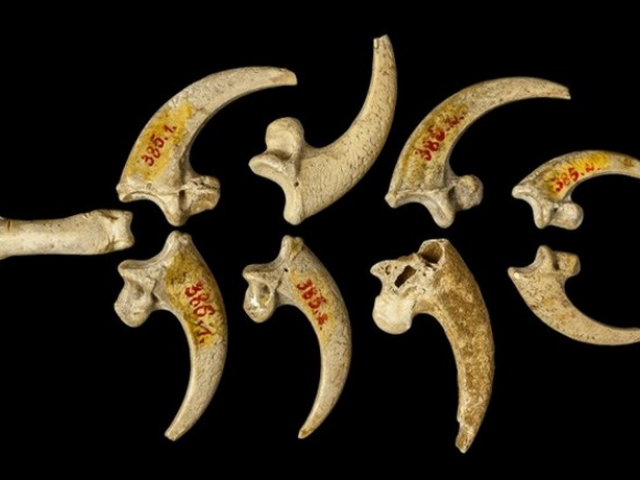
The Neanderthal Jewelry from Croatia
Archaeologists who excavated in the caves of Croatia managed to find that Neanderthals learned how to make jewelry 130,000 years ago, long before this art was mastered by our ancestors Cro-Magnons. Scientists were able to dig up not only spears, hand axes and all sorts of working tools and instruments but also some semblance of jewelry made from claws of sea eagles, aggressive birds of prey, quite rare in the mountains of Croatia.
Judging by the age of the claws, these necklaces are the oldest specimen of jewelry made by Neanderthals.
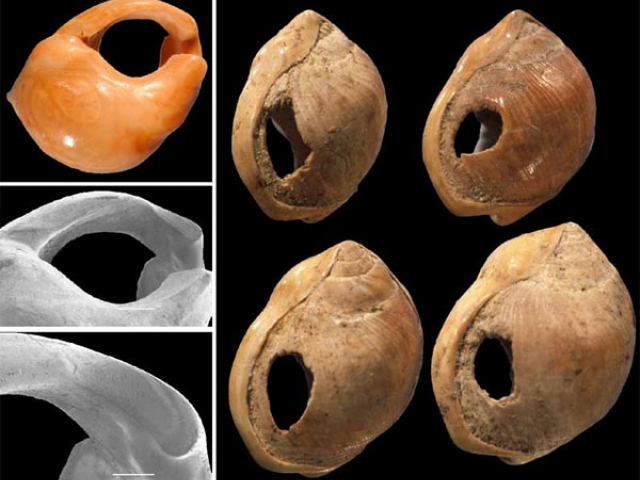
Nassarius Snail Beads
A pendant made from shells of a sea snail called Nassarius is also one of the oldest jewelery in the world. In the summer of 2017, a team of archaeologists managed to discover thirteen similar beadwork across the African continent, with the oldest examples found in Morocco, dated to some 80,000 years ago.
Shells have holes for a string, and there are remnants of mural made with red ocher. Currently, artifacts are stored at Oxford University.
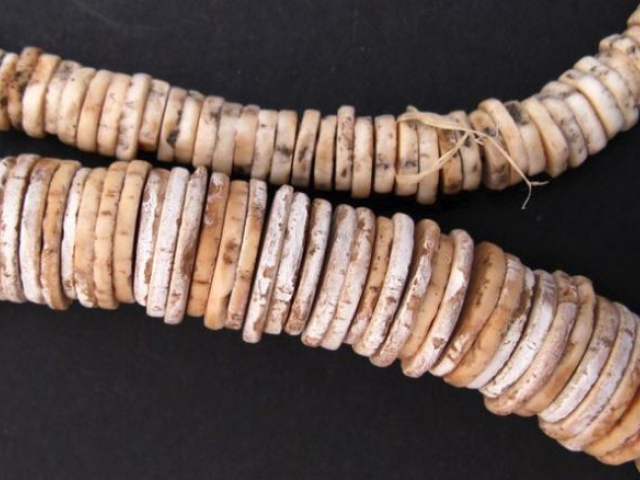
Ostrich Shell Beads of Kenya
Such necklaces were first found in the site of Enkapune Ya Muto, translated as the Twilight Cave, in Kenya. This place on the Mau hill is considered an archaeological monument of the Upper Paleolithic era. The ornament found here, made from drilled ostrich egg shells, is believed to be 40,000 years old and are among the oldest in the world.
Similar pieces of jewelry were found in the Diepkloof Rock Shelter in South Africa. Scientists suggest that they are even older, 70-75 thousand years.
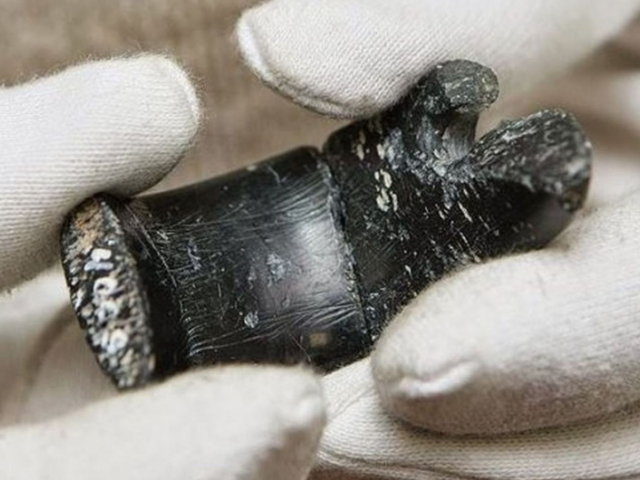
Denisovan Stone Bracelet
In 2008 on an excavation site in the Altai region of Siberia, a small bone fragment was found among some of the human remains. At first, scientists could not establish the nature of this artifact: these two fragments 2.7 centimeters wide and a little less than a centimeter thick remained unidentified.
And only after many examinations, English scientists not only determined that this jewelry was a bracelet, but also indicated its age, at least 40 thousand years.
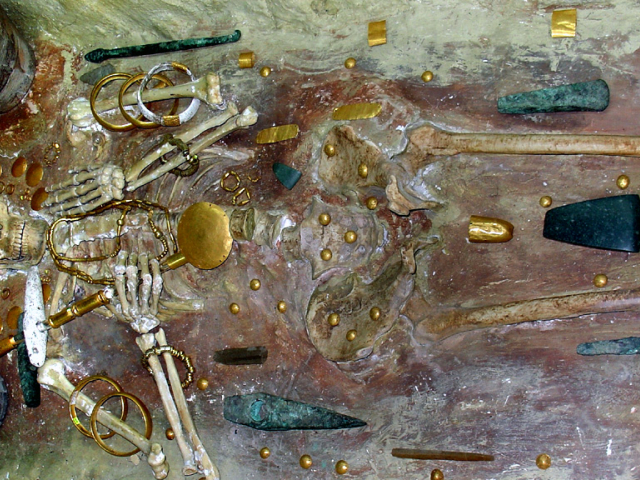
The Gold Riches of Varna
The Varna burial ground, accidentally discovered in 1972 in the industrial part of the Bulgarian city of Varna, is now considered one of the most important archaeological monuments of prehistoric Europe. During the construction work, the workers found several brilliant objects in the excavator bucket. Then it became clear that they were gold jewelry and fragments of ceramic products.
In total, 294 graves, more than 3 thousand gold objects with a total weight of over kg, a variety of copper objects, more than 600 ceramics (including gilded), as well as high-quality flint and obsidian blades and ornaments were found in the Varna necropolis of the 5th millennium BC.
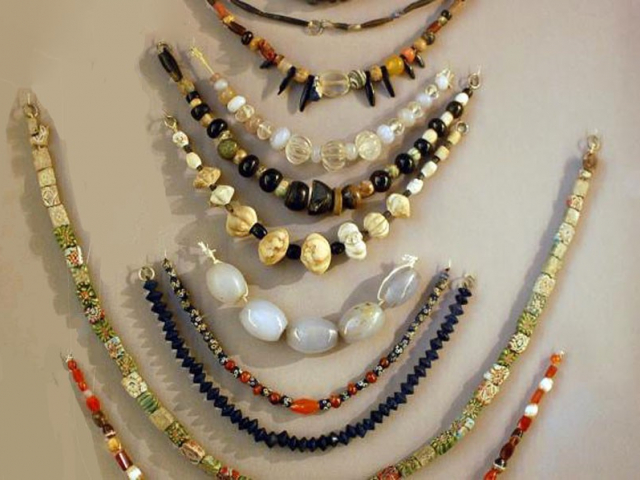
Glasswork of Egypt
Egypt is the center of one of the ancient civilizations and an inexhaustible storehouse of wealth for modern archeology. The tradition that was carried on and on by the goldsmiths of Egypt was responsible for the Tutankhamun’s burial mask, the bust of Nefertiti, the golden capstone of the Pyramid of Giza, and many other notable wonders.
According to archaeological reports, glass jewelry and precious objects were made almost 5 thousand years ago in Egypt. At that time, not only women but also men worn jewelry, like rings, bracelets, necklaces, tiaras, medallions and much more.
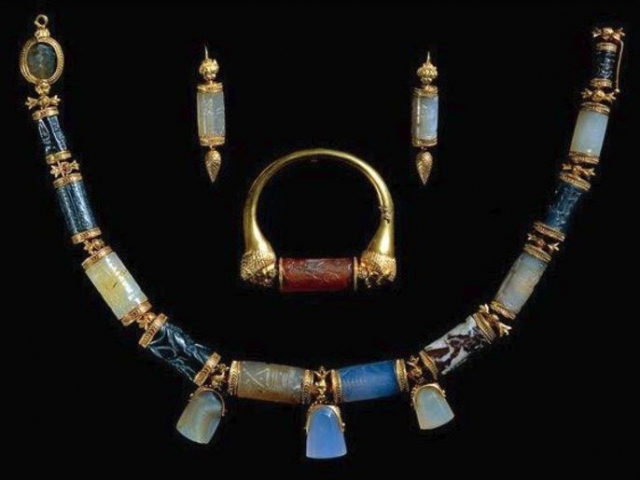
Mesopotamian jewelry
As in Egypt, in Mesopotamia, jewels were popular not only among women. Pieces of jewelry were worn by men and even children. Every member of society, regardless of class and race, wore decorative objects or amulets, which, unlike in other ancient civilizations, were not an attribute of only royal figures.
Thus, jewelry production in Mesopotamia was developed to the highest standards, and craftsmen working with precious metals (gold, copper, silver) and stones (carnelian, jade and lapis lazuli) in special guilds were controlled by the government.
 Deutsch
Deutsch 
 Русский
Русский English
English Bahasa Indonesia
Bahasa Indonesia Bahasa Malay
Bahasa Malay ไทย
ไทย Español
Español Български
Български Français
Français Tiếng Việt
Tiếng Việt 中文
中文 বাংলা
বাংলা हिन्दी
हिन्दी Čeština
Čeština Українська
Українська Română
Română
